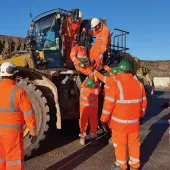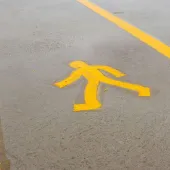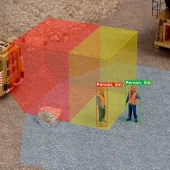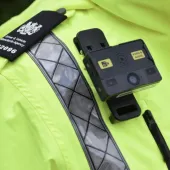Durite introduce All-in-One solution for DVS Phase 2
New Direct Vision Standard Progressive Safe System launched at FORS annual conference
DURITE launched their new DVS Progressive Safe System (PSS) at the FORS annual conference on 2 November, demonstrating the company’s commitment to advancing standards and practice in vehicle safety, and reinforcing its status as leading supplier of safety camera solutions for commercial vehicle fleets.
‘The FORS conference was the perfect platform for us to showcase our comprehensive All-in-One solution as it brought together many fleet operators who are all striving to achieve best practice in safety,’ said a spokesperson for Durite.
From 28 October 2024 heavy goods vehicles over 12 tonnes will need to have a three-star rating as a minimum or fit a Progressive Safe System to operate in Greater London.
‘There have been significant technological developments since the Direct Vision Standard (DVS) was first launched and the new Progressive Safe System (PSS) requirements reflect that. It is expected that the new system will help to further reduce the risk of road collisions and the number of false alerts, minimizing the sensory overload experienced by drivers.'
Compared with DVS Phase 1 and the original Safe System, the new PSS requires the nearside detection system (BSIS – Blind Spot Information System) to distinguish between stationary and moving objects, and to only alert the driver when a collision is imminent. A Moving Off Information System (MOIS) has also been added to detect vulnerable road users who are within or about to enter the critical blind spot area in front of a vehicle.
Durite’s All-in-One Progressive Safe System (PSS) uses smart AI (Artificial Intelligence) technology to completely eliminate blind spots and offers an enhanced detection area that fully meets the coverage proposed by Transport for London (TfL) to improve visibility and safety.
Durite believe the safety and commercial benefits of fitting an effective camera monitoring system (CMS) are numerous and can have an immediate, positive impact on any responsible road transport business.
‘Our BSIS and MOIS have already met the UNECE R151 and R159 standards, however it was critical for us as a business to go through rigorous testing as per the TfL guidance. We want fleets to enjoy a smooth transition to DVS Phase 2 with Durite and so we are doing thorough work in the background to ensure they get their safety permits when the applications open.’
To ensure total peace of mind for end-user fleets, Durite used an independent third party, the Association of Vehicle Installers (AVI), to make sure all their testing procedures met the criteria set in the technical specifications published by Transport for London.
The Progressive Safe System from Durite includes an analogue high-definition monitor, BSIS and MOIS camera system, left-turn speaker, warning sign, low-speed trigger, and cables. The system comes with a two-year extended warranty, and installation services are available. In addition, Durite All-in-One solutions to comply with DVS Phase 2, record evidence in case of an incident, and/or livestream the fleet are available.
Although the new requirement does not become mandatory until October 2024, all HGVs that are 0, 1 or 2 stars, or that have been granted a DVS Safety Permit until 2024 only, will need to install a Progressive Safe System to their vehicle before reapplying for a new DVS Safety Permit.
The Direct Vision Standard and HGV Safety Permit for HGVs is part of the Mayor of London’s Vision Zero pledge to eliminate all deaths and serious injuries on London’s transport network by 2041.










